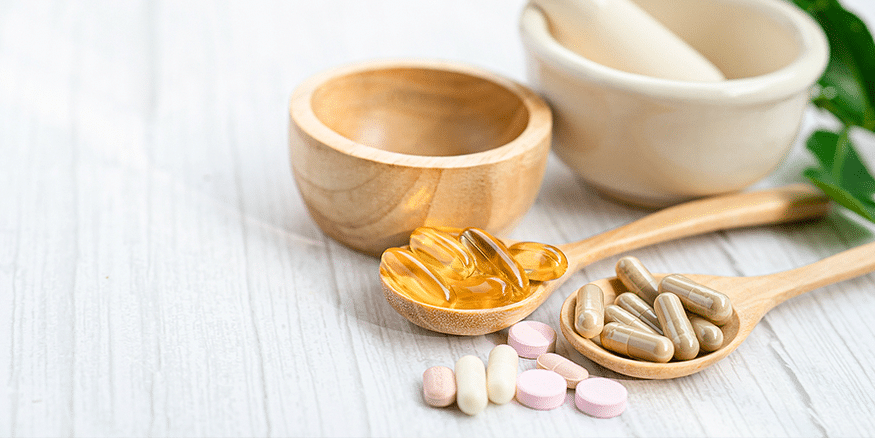
Guidelines for Choosing Herbal Products
Be sure your choice of a botanical (herbal) product is appropriate to your healthcare goals and compatible with any prescription and over-the-counter medications or other dietary supplements you may be taking. Consulting a nutritional or other healthcare professional who is knowledgeable about dietary supplements is helpful.
Always investigate the reputation of the manufacturer whose product you’re considering. Consumers who expect quality products and express this to retailers, help ensure that suppliers carry only products manufactured to high-quality standards. Things to keep in mind throughout your investigation should include factors such as how the herbs are grown, selected, stored, and processed. You may minimize the risk of pesticide contamination by choosing organically grown herbs whenever possible.
Use the dietary supplement label to obtain important information such as:
- The complete botanical name of the product,
- The part of the plant used to prepare the product confirming that it is, in fact, the part containing the active component(s),
- The concentration of the botanical and whether the concentration is appropriate for obtaining benefits from the product,
- The daily dosage needed to obtain the desired effect,
- The list of ingredients used to confirm that there are no animal by-products, fillers, dyes or other colourings, preservatives, or potential allergens,
- A lot number, which is helpful if problems arise as it allows tracking of the product through each stage of the manufacturing process, facilitating recalls of the product, if necessary,
- An expiration date,
- A recognized seal of approval that indicates the use of good manufacturing practices during production and confirms that the product has passed independent analyses for an accurate label, and
- A toll-free number for contacting the manufacturer in the event of adverse reactions.
Be wary of products brought into the country through any route other than official channels, as these may have by-passed appropriate inspections. Some herbal products previously inspected, have shown contamination from such things as prescription drugs, animal waste, hair, lead, starch, fungus, and high levels of bacteria. Others did not contain the specific product stated on the label.
Don’t assume that ‘natural’ or ‘herbal’ is synonymous with ‘safe’ or ‘healthy,’ or that more is better. Some herbal products can cause serious harm and others are safe only at certain doses.
Avoid products with exaggerated claims associated with them, especially ‘miracle’ cures.
After you have determined that a manufacturer and its product meet these standards, compare prices among products of similar quality as prices vary widely.
